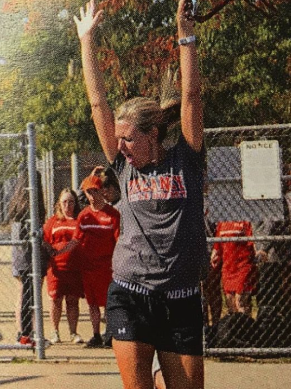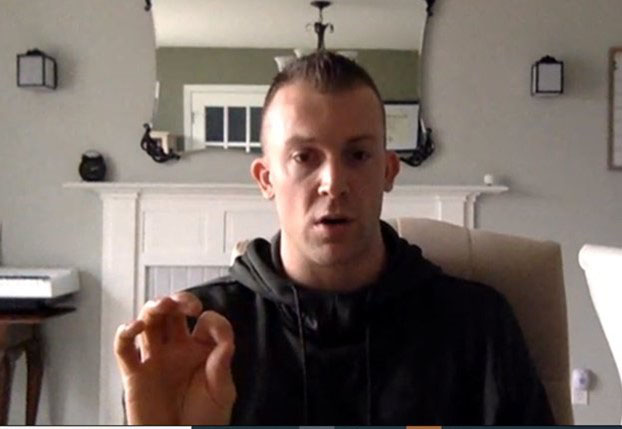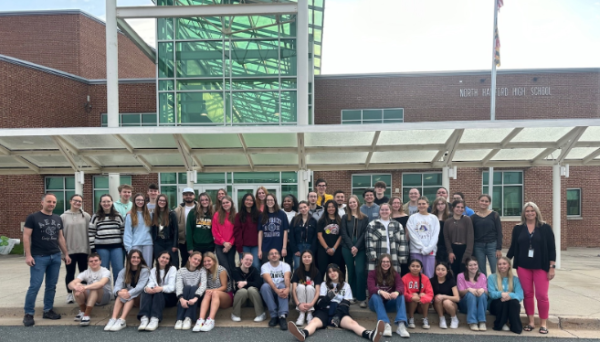New skills arising in students; Creation of podcasts proves beneficial
Frank Reynolds teaches the tips and tricks about podcasts. Those tips and tricks were used when creating future podcasts.
February 28, 2021
“Podcasting has, more or less, been this past decade’s evolution from radio,” states Frank Reynolds, a podcast enthusiast. “A podcast is an episodic, on-demand radio show about anything.”
Podcasting is a worldwide source for news, stories, entertainment, and more. Reynolds describes that he loves expressing himself through this type of platform, even editing the podcasts has become a “fun hobby” of his.
According to Podcast Insights, 50% of all homes are podcast fans. Meaning, over 60 million homes tune in to listen to podcasts. Along with that, studies show that podcast users are more educated, states Steven McClung Ph.D. and Kristine Johnson M.S.
Reynolds explains that making a podcast nowadays isn’t that hard, it can be done simply by recording yourself talk about something you are passionate about, using a free audio editing software, upload it to a podcast hosting network, and finally, create an RSS feed. An RSS feed is an organized account of updates from your websites, all in one place.
Senior Theodore Rush says that his only main challenge was “figuring out how to give the conversation a good flow and naturally ask my questions.” Rush also said that learning how to speak confidently and more clearly became a handy tool for him, outside of just podcasts.
Carli van Heerden, founder, and CEO of We Edit Podcasts states that “Overall, podcasting takes a lot of time to get everything organized and ready to hit publish. This includes doing your research, finding the right guests, getting everyone’s schedules to match up, and making sure that the content is valuable and specifically targeted to your audience.”
Not being prepared is one of the recurring mistakes that Reynolds says he has seen, along with “using too many “umms,” “likes,” etc. while speaking.” Reynolds also states that “you must go into a podcast harboring a wealth of knowledge regarding the subject you’re speaking on. If you do not, you are either going to be left scrambling or, worse, you will not come across as a reliable resource. As for those stalling words, avoid them at all costs. No professionals speak that way.”
Freshman Kris Gray feels that the fact that everything is your creation when making a podcast is really “special”. Gray also believes “no one is going to listen to you if they don’t care about what you are saying. Also, if you do not know what you are talking about and you assume things, no one is going to take you or your podcast seriously.
Journalism teacher Mrs. Jennifer Chandler invited Reynolds to her class as a way to “give students some real-world experience with someone who has worked in the field of podcasting” She added that the opportunity for students to interact with Reynolds was positive and that the students “were mature and focused on getting as much out of the experience as they could.”
The journalism students in Chandler’s Journalism I class recently finished their own podcasts and Chandler said that the results were “astonishing” and that she is excited to “share the amazing work some of these students have created with the public.”











